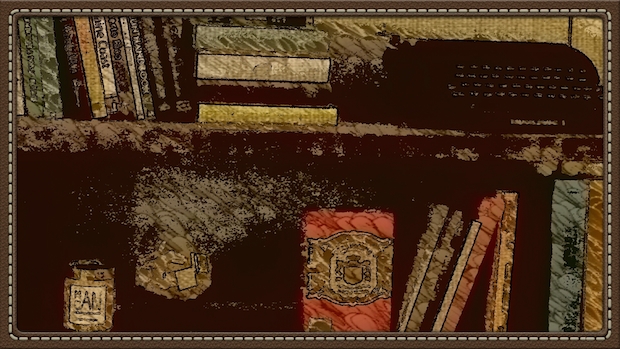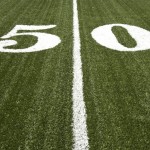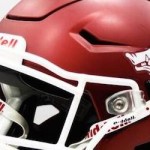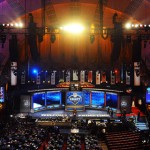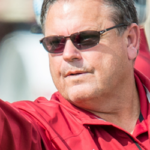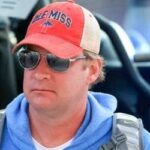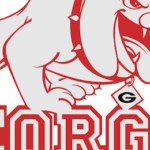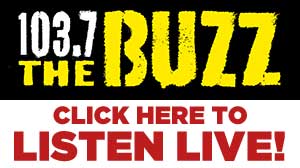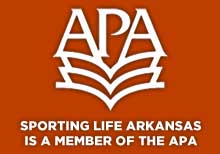By Kane Webb
The World Cup? A fashionable diversion. Baseball? Idyllic summer white noise. But we’re all really waiting for training camp, aren’t we? As a way to usher you through this pigskin dead period, we here at the Dept. of Recovering Sportswriters have compiled a list of football books. These are favorite football books. Not a Sports Illustrated-style best-to-worst ranking but a wholly subjective, wholly personal, much-loved list of must-reads from yours truly, Rex Nelson, Simon Lee, and Jim Harris.
For a sports book to work, it must be about more than sports. This is especially true when it comes to football, which may be the least literary game. Was it Red Smith, every sportswriter’s gold standard, who said that the smaller the ball, the better the writing? Eliminate a ball entirely, as with horse racing and boxing, and sports writing approaches art in the right hands.
The books listed below were in the right hands. Each author clearly wanted to write about more than sports. Here’s what Buzz Bissinger, author of Friday Night Lights, said about his approach to writing about football more than 25 years ago: “The goal had never been to write a sports book, per se, but rather to take an ethnographic look at life in an American town in which everything was touched by high school football.” In a country in which everything is increasingly touched by sports, football handsiest of all, it almost seems unfair to label these sports books at all. How about just great reads?
I’ll go first. Here’s my top 10, in no particular order:
1. The Courting of Marcus Dupree by Willie Morris. A perfect match of writer and subject. Only a Willie Morris could turn a story about high school recruiting into something approaching literature. 1
2. Friday Night Lights by Buzz Bissinger. The original fly-on-the-wall, warts-and-all exploration of a way of life in west Texas known as high-school football. Bissinger’s book spawned a pretty good movie with Billy Bob Thornton and an even better television show with Kyle Chandler, both aka Coach Taylor. Somehow the author manages to be both objectively critical and sympathetic to his subject. 2
3. Paper Lion by George Plimpton. Participatory journalism by the man who may have invented it and certainly perfected it. Comic relief: the stork-like Plimpton qualifies as the least likely NFL quarterback this side of Tim Tebow. 3
4. A Fan’s Notes by Fred Exley. Sartre roots for the New York Giants. A sampling: “Why did football bring me so to life? I can’t say precisely. Part of it was my feeling that football was an island of directness in a world of circumspection. In football a man was asked to do a difficult and brutal job, and he either did it or got out. . . . Whatever it was, I gave myself up to the Giants utterly. The recompense I gained was the feeling of being alive.”
5. The Best Game Ever by Mark Bowden. Colts-Giants. 1958. The NFL championship at Yankee Stadium. Overtime. Johnny Unitas. Frank Gifford. Men in overcoats and hats in the stands smoking filter-less cigarettes and dime cigars. Television! Without this game, approximately 450 squillion of us aren’t watching the Super Bowl every year. Bowden’s retrospective is about the oddball personalities as much than the game. Example: Colts receiver Raymond Berry would spend his summer downtime acting out an entire game, play by play, all by himself. 4
6. The Sportswriter by Richard Ford. A bit of a cheat. Ford’s novel introduces us to Frank Bascombe, one of the more endearing characters in contemporary American literature and recognizable to any middle-aged man with a few fits and starts in his life. It’s not about sports writing, or sports; it’s about Frank growing old and dealing with life’s body blows. But there’s one perfect passage — actually, there are many perfect passages in this book — in which Bascombe visits Detroit to interview a retired football player named Herb Wallagher, who lives near a lake just outside the city.
It turns out that Herb is crazier than the loons on his lake. Check out this exchange between the sportswriter and his subject:
“Do you ever miss playing football, Herb?” I say, and smile hopefully.
“What?” Herb is drawn back from a muse the glassy lake has momentarily fostered. He looks at me as though he had never seen me before. . . .
“Do you miss athletics?”
Herb stares at me reproachfully. “You’re an asshole, Frank, you know that?”
Ah, the afterlives of our gridiron heroes — and those poor bastards assigned to prop them up. 5
7. Fast Copy by Dan Jenkins. Best dedication ever: “For every ink-stained wretch who knows what it’s like to wait for the deadline muse.” Happily, the rest of the book — part thriller, part-newsroom tale and rom-com set in the 1930s and centered on a TCU-SMU football game that actually meant something — holds up just as well. 6
8. America’s Game by Michael MacCambridge. A not-so-brief history of America’s favorite pastime. Keep it on the coffee table for use as necessary distraction during that Vanderbilt-Kentucky snoozer.
9. Confessions of a Washed-Up Sportswriter by Gary Cartwright. Another cheat. Cartwright, of the Larry L. King, Larry McMurtry, Bud Shrake golden age of Texas literary lights, also includes non-sports stories like his feature on Jack Ruby. From an era in which sportswriters spit out lines like this: Tom Landry “smiled his Ice Age smile” and wore a “burial-policy dark suit.”
10. Horns, Hogs, & Nixon Coming by Terry Frei (as much as it hurts to read the ending). If you want to understand pre-Clinton Arkansas, study two events: the ’57 Central High Crisis and the ’69 Arkansas-Texas football game.
* * *
Rex Nelson: “OK, here goes. I have several high school football books in here that most people won’t recognize, but that’s because I love high school football.”
1. Bear by John Underwood and Paul Bryant
2. The Last Coach by Allen Barra
3. The Missing Ring by Keith Dunnavant
4. It Never Rains in Tiger Stadium by John Ed Bradley
5. The Hurricanes by Jere Longman
6. The Junction Boys by Jim Dent
7. The Blind Side by Michael Lewis
8. Our Boys by Joe Drape
9. Twelve Mighty Orphans by Jim Dent
10. Friday Night Lights by Buzz Bissinger
* * *
Simon Lee:
Blood, Sweat and Chalk by Tim Layden. It’s subtitled: The Ultimate Football Playbook: How The Great Coaches Built Today’s Game. Kinda wonky but it walks through all of the major modern and historic football formations with insights from the coaches who developed them.
A stretch, but I would fight to the death for its inclusion. Fear and Loathing at Rolling Stone, The Essential Writing of Hunter S. Thompson. The book is both a collection of Thompson’s best work for the magazine and behind-the-scenes private letters to Jann S. Wenner and others about what he was working on and complaining about in real time. Throughout this collection, Thompson discusses football — the car ride with Nixon specifically because he was the only writer in the press pool in 1968 in New Hampshire who could talk the sport with “the boss.” Also included is his book, “Fear and Loathing at the Super Bowl,” a masterpiece that predicts the decline of the pro game, which in hindsight may more accurately reflect what we’re seeing with the rise of televised college games and declining ticket sales.
* * *
Jim Harris:
Life Its Ownself by Dan Jenkins
The Junction Boys by Jim Dent. Perfect summer reading.
Horns, Hogs, & Nixon Coming by Terry Frei (and basically anything else by Terry Frei)
Hogs! by George Schroeder
The Razorbacks by Orville Henry and Jim Bailey
The Missing Ring by Keith Dunnavant (about Alabama’s 1966 team)
The Bear by Don Keith (based on a screenplay by Al Browning Jr.)
Saturday’s America by Dan Jenkins (one of his earliest, 1970 or thereabouts, that captures some of the rivalries he covered)
Amazing Tales From Hog Heaven by Nate Allen
The Bootlegger’s Boy by Barry Switzer and Bud Shrake
* * *
Footnotes:
1 See also the “30 for 30” documentary on Dupree from ESPN titled “The Best That Never Was.” 2 Bissinger ticked off most of Odessa with his book and left Coach Taylor feeling betrayed. But he reached out to the coach years later and wrote about it for Sports Illustrated. He writes about the TV show here. 3 Quick story about the late George Plimpton, the founding editor of The Paris Review. A few years ago, an author I interviewed told me about an essay he landed in Plimpton’s prestigious little publication. The writer received a phone call from a Paris Review editor saying that “George” had a question about his essay. Expecting the editor to pass along the question, the writer instead was patched through to Plimpton, who actually had several questions and several editing suggestions and did everything for the young writer but bigfoot him. The writer never forgot the kindness. Neither did I. It’s heartening when you find out that somebody is as nice as you imagine. 4 Bowden is best known for his books Black Hawk Down and Killing Pablo, a pair of nonfiction military histories that read like thrillers, but he once worked as a sportswriter for the Philadelphia Inquirer. As an addendum to Best Game, read his piece on watching a tape of that game with then-Philadelphia Eagles head coach Andy Reid. A few years ago, I considered stealing the idea and asking Bobby Petrino to watch a tape of the Big Shootout with me, breaking down that lost-era game with his modern-era coaching mind. But he got busy; ahem, in more ways than one. 5 Ford spent part of his childhood in Little Rock, where his grandfather managed the old Hotel Marion, now site of a Hilton, is it? Ford returned last spring for a talk at the Arkansas Literary Festival. His latest novel Canada had just been published. At the festival, Ford, who seemed sincerely pleased to be back in Arkansas, dropped the news that Frank Bascombe would be re-appearing in a novella. 6 Protagonist Betsy Throckmorton, a chain-smoking, tough-talking newspaperwoman c. 1935, seems sure to have been at least partially based on Jenkins’ sports-writing daughter Sally Jenkins.
* * *
Kane Webb, a longtime Arkansas journalist and former sportswriter, recently returned to his home state from Louisville, Ky. He is currently working on a book.


